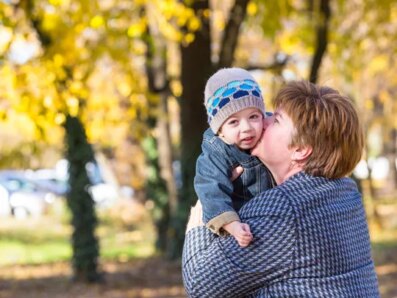It is still not known what causes children to develop disordered eating, although there are factors which can increase the risk, including a family history of disordered eating or existing struggles with their mental health.
What is known however, is that the prevalence of disordered eating over recent years has been going up, especially in children under the age of 12. Children and teenagers who have experienced stressful life events or are living with an existing mental health difficulty are most vulnerable to developing disordered eating, making young people in care at greater risk.

There are considered to be a number of different forms that ‘eating disorders’ might take – and a child doesn’t have to be focused on body weight or image to have an eating disorder. In fact, eating disorders often begin as a coping mechanism for young people in care; when it feels like everything else is completely out of their control, food becomes the one thing that they can control.
Children living with disordered eating can often feel a lot of shame, and often try to conceal their distress. As a result, it can be challenging for adults to spot the symptoms, especially for foster parents who may be in the early stages of developing their relationship with a child, and therefore still learning their individual ‘norms’. Some children of course can just be very selective eaters, in which case encouragement of trying new food can be rewarding, but with the NHS treating a record number of children and young people for eating disorders in 2022, awareness of the symptoms can make a life-changing difference.
Signs of disordered eating
Despite the subtleness of the signs there are some warning signs that you can look out for:
- Aversion to tastes or textures (more common in younger children). Although children with a neurodevelopmental condition – such as autism spectrum condition – may also be sensitive to different food textures, tastes and smells, so it’s important to have a holistic understanding of what may be going on for your child.
- Becoming overwhelmed with big feelings or distress, mood swings, or increased irritability.
- Tiredness or exhaustion, often with insomnia.
- Increased social isolation, both in and out of the house. This is especially seen around meal times and other events with a food element.
- Excessive bowel movements, constipation or digestive issues. This could also be seen through the use of diet pills or laxatives.
- Preoccupation and worry about body image or a change in clothing style, for example wearing baggy clothes to hide their figure. Again, this alone doesn’t mean the child in your care has disordered eating. In fact, it’s perfectly normal for young people to become more aware of their body as it changes through puberty. So understanding the wider picture around your child’s relationship with food and body image is key.
- Change in eating habits – be this refraining from eating, reducing portion size or hiding food. This could also be seen as binge eating prior to purging.
- Change in weight and / or repeatedly weighing themselves.
- Compulsive or excessive exercising and potential injuries arising from this.
- Thinning of hair or the growth of fine, downy hair on the body.
Supporting a child living with an eating disorder
Most warning signs for an eating disorder involve change in the child, so one of the most protective and supportive things you will be able to do is get to know them as they grow and develop with your family. Use our network and expertise to inform you of any concerns and simply trust your gut – you will usually know if something seems different or feels off, so listen to your parental intuition.
If you notice any of these signs, or have any concerns about the child in your care, it’s worth mentioning to your fostering team and a medical professional if necessary before the condition escalates.
Access specialist NHS treatment services tend to be for the most advanced cases. This can feel incredibly frustrating and isolating for anyone caring for a young person who is living with an eating disorder. But this doesn’t mean you can’t help them on their recovery journey. In fact, support from a trusted adult early on can be a really effective early intervention. Remember at their core, eating disorders are very rarely about food, they are more about what the person is feeling. Beat, the UK’s leading charity supporting people with eating disorders, has put together this booklet for anyone supporting someone with an eating disorder.
Support from ISP
If you’re fostering with ISP, you can speak to your professional network that works with you and your young person, including your social worker and our therapy team. Treatment of an eating disorder among children has many components and our therapeutic support service offers a starting point to help a journey to recovery.
For the foster parent too, this can be a challenging time with lots of anxiety and conflict, so remember that our ‘wrap-around’ package is there to help you in all situations as well. Make sure that you get support for yourself and look to get the understanding and any learnings you might need to help guide the child through this journey.







